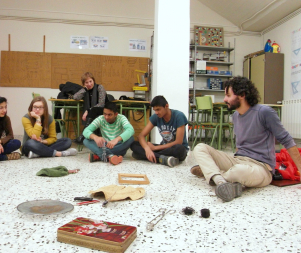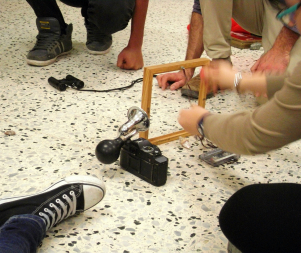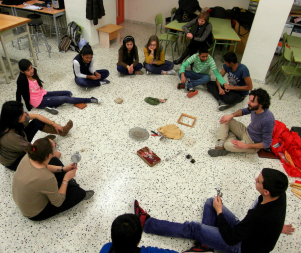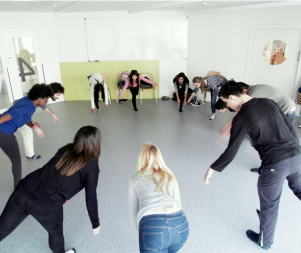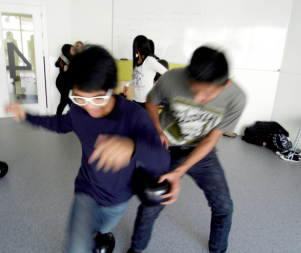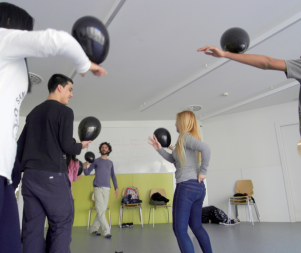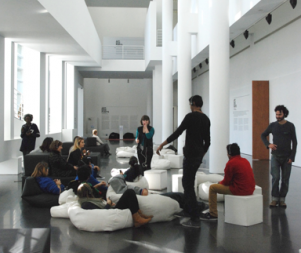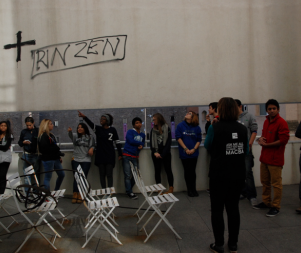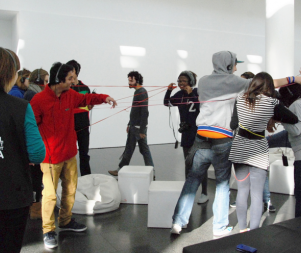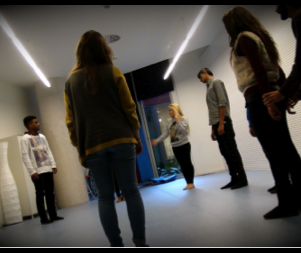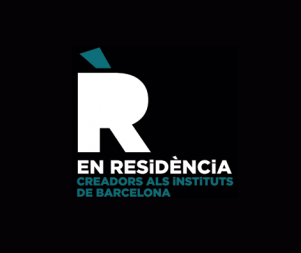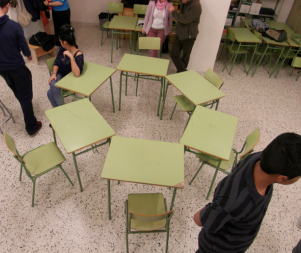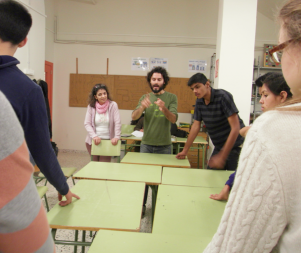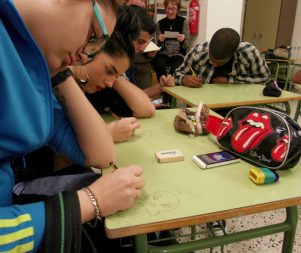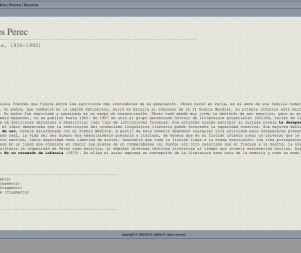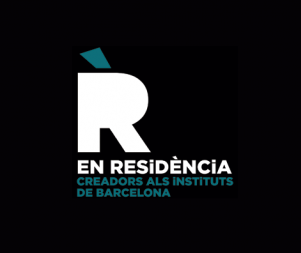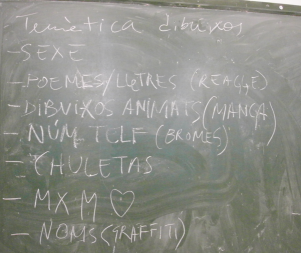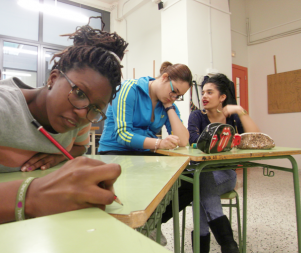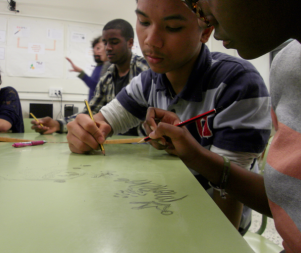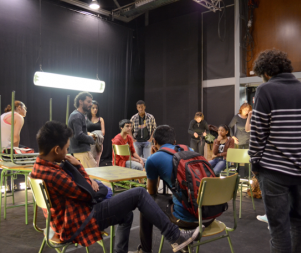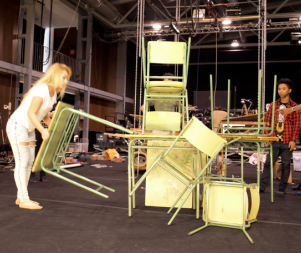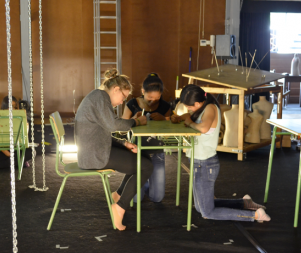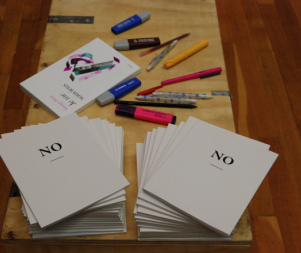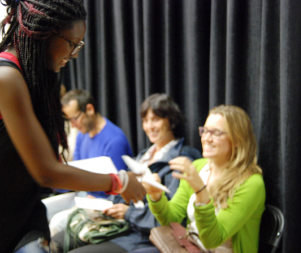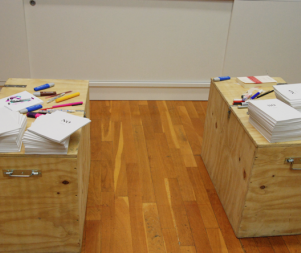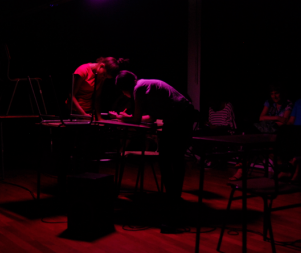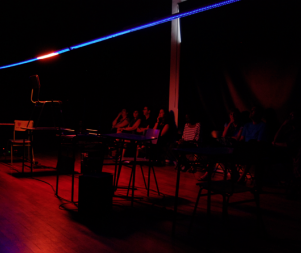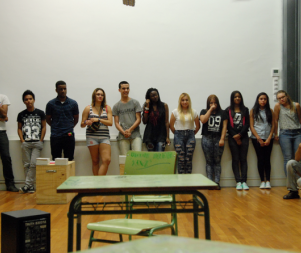- 14th EDITION 2022 / 2023
- 13th EDITION 2021 / 2022
- 12th EDITION 2020 / 2021
- 11th EDITION 2019 / 2020
- 10th EDITION 2018 / 2019
- 9th EDITION 2017 / 2018
- 8th EDITION 2016 / 2017
- 7th EDITION 2015 / 2016
- 6th EDITION 2014 / 2015
- 5th EDITION 2013 / 2014
- 4th EDITION 2012 / 2013
- 3rd EDITION 2011 / 2012
- 2nd EDITION 2010 / 2011
- 1st EDITION 2009 / 2010
Xavier Bobés IN RESiDENCE at the School Poeta Maragall
WHERE DO OBJECTS TAKE US?
The guiding thread in the first part of the work proposed by Xavier Bobés revolved around the creation of installations from different everyday objects. An initial experimentation period included a space for handling each type of object and observing their expressive potential. The group creates small landscapes that embody feelings, ideas, etc.
THE BODY AND MOVEMENT
Parallel to the research into objects, the group began performative work on the body in order to develop the proposal of manipulating the objects in a theatrical environment in which the body is also present. These sessions took place on a monthly basis at the Urgell community centre, which provides a large space for this type of work.
VISIT TO MACBA
At the end of the first term, a visit was organised to MACBA in order to see and discussion various works in the collection. The route around the gallery focused particularly on installations. At the end of the visit, the group took part in an enjoyable movement activity organised by the museum education service.
LOAN OF FACILITIES AT URGELL
The Urgell community centre was requested to provide a space for work with the body. Accordingly, once a month, the In Residence session took place at this site. This cooperation with the community centre, which is located very close to the school, proved invaluable, as it enabled the group to do a type of movement work that would have been impossible in the classroom at the school.
THE CLASSROOM FURNITURE
After the group had conducted research into different objects, Xavier Bobés proposed exploring the use of objects related to the world of embroidery. However, the pupils did not feel particularly identified with this theme, and suggested that they could work with classroom materials: desks, chairs, pencils, marker pens and so on.
GEORGES PEREC: QUESTIONNAIRES AND RECORDINGS
The literary universe of Georges Perec was introduced through short excerpts from his work. The pupils began to write pieces on themes important to them. This work is organised by the use of certain methods favoured by Perec himself: questionnaires, lists, multiple-choice test-type answers, etc. Whilst work continued on writing, the group also began to make voice recordings, an aspect that gradually grew in importance. Some of these recordings were included in the final installation.
THE EVERYDAY AS THEME
Gradually, the issues that most worry the pupils became the central themes of the installation: boredom, love, mistakes, doubts, etc. The pupils continued to make recordings and begin to inscribe their words onto the desks that would form part of the installation.
DESIGNING THE INSTALLATION
During an outing to Can Gassol (Mataró), the pupils and Xavier Bobés decided the form of the installation and created a plan to assemble it on the day of its presentation. They decided to arrange the desks in a line that metaphorically represented the different ways of occupying the classroom: from imposed order to chaos and compromise.
PUBLICATION “NO. NO ME'N RECORDO” [NO. I DON'T REMEMBER]
Based on the questionnaires, the pupils created texts, which Xavier Bobés published in a book entitled No. No me'n recordo [No. I Don't Remember]. Besides the written texts, the publication includes a CD containing the audios recorded as part of the installation. At the presentation, the pupils distributed copies amongst those attending.
THE PRESENTATION
Two presentations of the installation were made at the Sebastià Gasch Room in the Mercat de les Flors theatre. On both occasions, the installation was presented together with a performance produced especially for the event. The pupils and Xavier Bobés then talked to spectators about the creative process.

